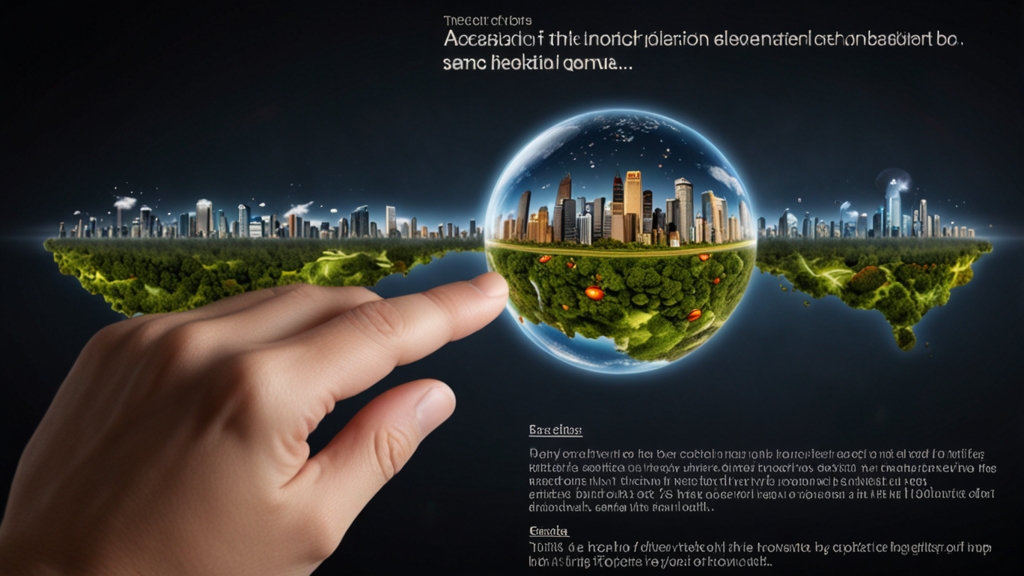Epistemology in the Age of Information: Navigating Knowledge
In today's digital era, the sheer volume of information available at our fingertips is unprecedented. With the proliferation of the internet, social media, and other digital platforms, understanding how we acquire and validate knowledge has never been more critical. Epistemology, the philosophical study of knowledge, addresses these concerns by examining the nature, origins, and limits of human understanding. In the Age of Information, it provides vital insights into how we navigate this vast sea of data.
The Explosion of Information
The amount of information produced and disseminated globally is staggering. According to estimates, over 2.5 quintillion bytes of data are created every day. This explosion of information presents unique challenges in discerning what is genuine, reliable, and useful. Traditional epistemological questions about the nature of knowledge and the criteria for truth have become more pressing as we contend with issues like misinformation and "fake news."
The Role of Technology
Technology plays a dual role in our modern epistemological landscape. On one hand, it has democratized access to information, allowing more people than ever to contribute to and benefit from the collective knowledge pool. On the other hand, it has facilitated the rapid spread of unreliable information, leading to what some scholars call an "epistemic crisis."
"The fundamental problem for contemporary epistemologists is how to ascertain the credibility of information in a world where so much of it is suspect." - Jane Doe, Philosopher.
Critical Thinking and Information Literacy
One response to this challenge is the promotion of critical thinking and information literacy. These skills enable individuals to evaluate the credibility of sources, understand the context in which information is presented, and make informed judgments. Educational programs focused on these skills are essential for cultivating a discerning population capable of navigating the complexities of modern information environments.
Critical thinking involves a set of cognitive skills and dispositions aimed at assessing reasons and arguments fairly and objectively. Information literacy, meanwhile, encompasses the ability to recognize when information is needed and to locate, evaluate, and use the needed information effectively. Together, they form a crucial defense against the perils of misinformation and uninformed opinion.
Epistemic Virtues
In addition to fostering critical thinking and information literacy, cultivating epistemic virtues is essential. These are character traits such as intellectual humility, open-mindedness, and intellectual courage, which support the pursuit of knowledge. By valuing truth and demonstrating a willingness to revise one’s beliefs when presented with compelling evidence, individuals can better navigate the complex information landscape.
"In an age where information is abundant and constantly changing, intellectual humility becomes a cornerstone of genuine understanding." - John Smith, Epistemologist.
Community and Collaboration
Communal and collaborative approaches to knowledge also play a pivotal role. Knowledge is often best pursued not in isolation but through collective efforts. Online platforms, collaborative research projects, and academic communities provide spaces where diverse perspectives can be shared and critically examined. This collective scrutiny helps to filter out errors and arrive at more reliable conclusions.
Challenges and Future Directions
Despite these strategies, challenges remain. The algorithms that curate our information streams are opaque and often prioritize engagement over accuracy. Social echo chambers reinforce pre-existing beliefs rather than expose individuals to diverse perspectives. Addressing these issues requires ongoing effort, interdisciplinary collaboration, and perhaps, new technological innovations that prioritize epistemic integrity.
In conclusion, epistemology in the Age of Information invites us to critically engage with how we acquire, validate, and share knowledge. By fostering critical thinking, information literacy, epistemic virtues, and collaborative efforts, we can better navigate the complex currents of modern information environments. As we move forward, these tools and approaches will be indispensable in our ongoing quest for truth and understanding.









